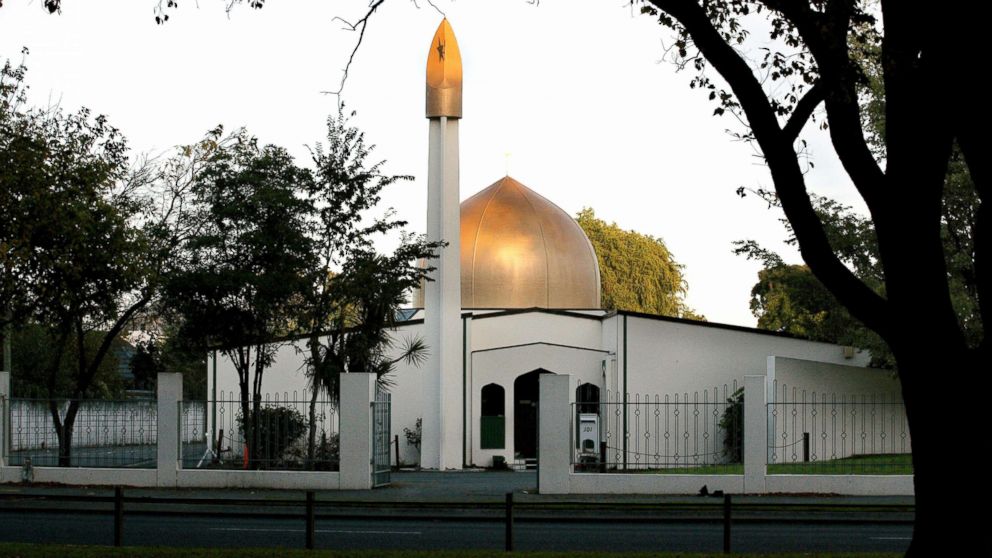Experts dissect reasons why mass shooters target houses of worship
The attack at a New Zealand mosque is just the latest deadly mass shooting at a house of worship — a stain on their susceptibility to becoming targets.
John Cohen, a former acting undersecretary at the Department of Homeland Security and current ABC News contributor, said the selection of a house of worship as a target for a mass shooting is two-fold: practicality and infamy.
"They are places where people who are the target of the attacker congregate," Cohen said.
"Killing men, women, and children while they are praying ensures that the public will pay attention to the attack and creates an incredible amount of fear and that is the ultimate objective of the attacker," he said.
In February, the FBI, DHS, and The National Counterterrorism Center issued a joint intelligence bulletin about the violent threats against faith-based communities.
The bulletin cites incidents where Jewish, Christian and Muslim faith-based communities were targeted in the past two years, noting how they "underscore the persistent threat domestic actors pose to faith-based communities in the United States, particularly against perceived soft targets such as religious and cultural facilities."
Cohen echoed that sentiment, saying that houses of worship are "supposed to be places that are open and inviting to worshipers."
"It makes establishing physical security complicated because you don"t want that security to serve as a disincentive to people wanting to come and pray," he said.
The joint intelligence bulletin said that homegrown violent extremists "may choose to plot against faith-based communities because of ideological drivers, a desire to target large gatherings or soft targets, or violent extremist messaging from foreign terrorist organizations."
While the victims in the attack in Christchurch, New Zealand, were at a mosque, the mass shooting victims at American houses of worship have been Christian, Jewish, and Sikh. However, the differences in religion do not change the underlying reason why they were likely selected, said Steve Gomez, a former FBI special agent in charge and current ABC News contributor.
"What makes them similar is that you have a suspect that has a certain ideology — in this case he's a white supremacist with anti-immigrant beliefs — and he views the Muslim community and mosques as a way to strike against the people that he hates in his heart, and that's why he selected those two mosques," Gomez said.
Here is a list of the deadly mass shootings, which the FBI defines as an incident in which four or more people — not including the suspect — are killed, in the United States over the past several years.
Shooting at the Tree of Life synagogue in Pittsburgh, 11 killed: Oct. 27, 2018
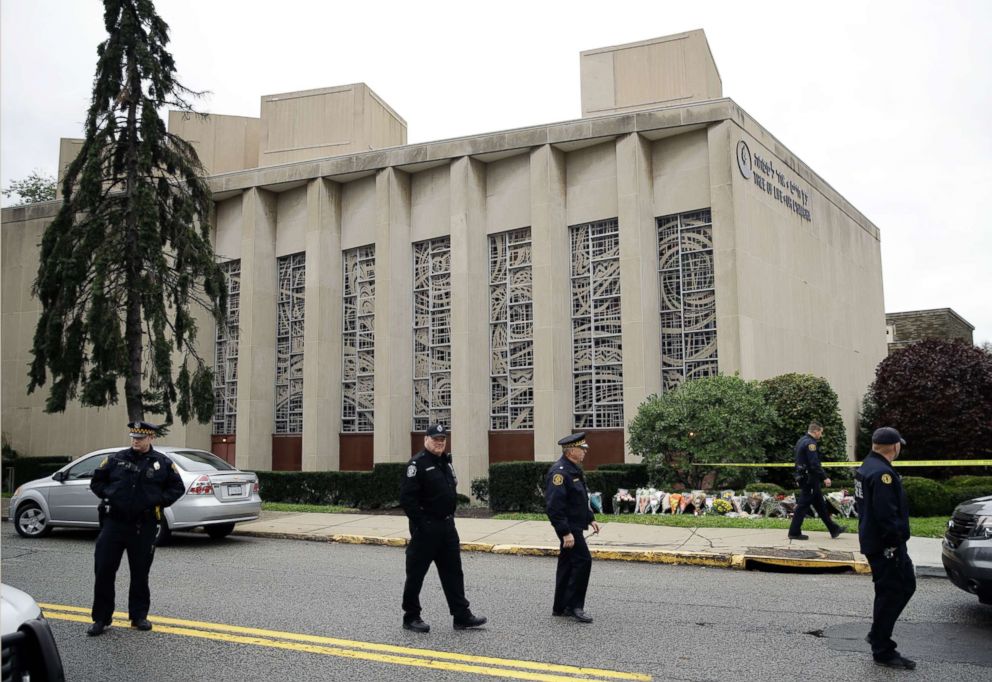
Eleven worshipers, including a 97-year-old woman, were gunned down inside the Tree of Life synagogue in Pittsburgh's Squirrel Hill neighborhood in what is believed to be the deadliest attack on Jews in America.
"Words escape me of what you can say," said Rabbi Jeffrey Myers, who was officiating a service when a gunman started shooting. "They were all beautiful, wonderful, good decent people. Hate was not in their vocabulary."
Investigators said that minutes before carrying out the carnage, suspect Robert Bowers is believed to have posted his intent to commit the massacre on the social media platform Gab — popular with white supremacists and the alt-right.
Shooting at the First Baptist Church in Sutherland Springs, 26 killed: Nov. 5, 2017
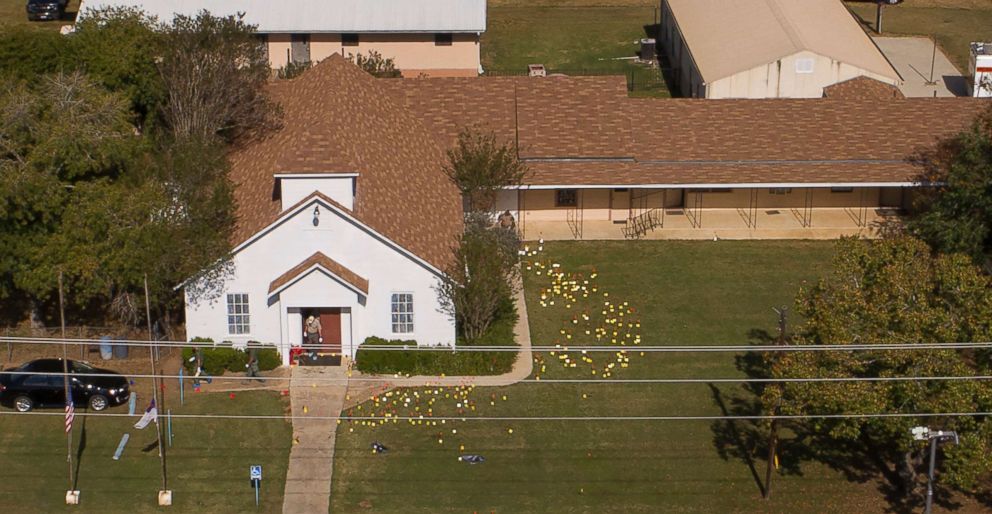
There were 26 people killed and 20 others were injured when a shooter opened fire at the First Baptist Church of Sutherland Springs. It was the third deadly shooting at a U.S. church in a three-year-period.
In the course of the investigation, it was discovered that suspect Devin Kelley's domestic abuse convictions from his time in the Air Force were not reported to the background check service used for gun buyers. He was able to purchase the weapon that was used in the Nov. 5 shooting.
Shooting at the Emanuel AME Church in Charleston, 9 killed: June 17, 2015
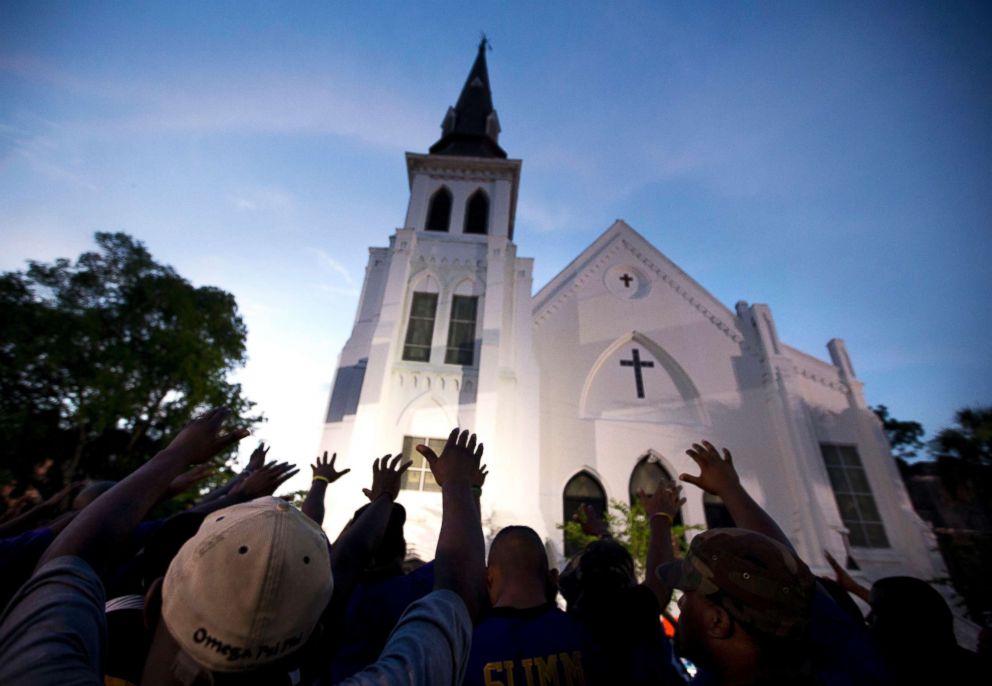
In June 2015, white supremacist Dylann Roof shot and killed nine black churchgoers during a Bible study at the Emanuel AME Church in Charleston, South Carolina. Roof was sentenced to death this January.
In a video interview with an FBI agent the day after the shooting, that was later played in court, Roof said that he believed someone had to do something about what he said were crimes committed by black people against whites.
"I don't like what black people do," Roof said in the video, but notes that no black person was ever violent to him or his family to prompt the attack. Roof said no one else was brave enough to do anything, referencing the KKK and skinheads.
Roof was sentenced to death in January 2017, making him the first death penalty verdict rendered in a federal hate crimes case, the Department of Justice said. https://abcnews.go.com/US/charleston-church-shooter-dylann-roof-sentenced-death/story?id=44674575
Shooting at the Sikh Temple of Wisconsin, 6 killed: Aug. 5, 2012
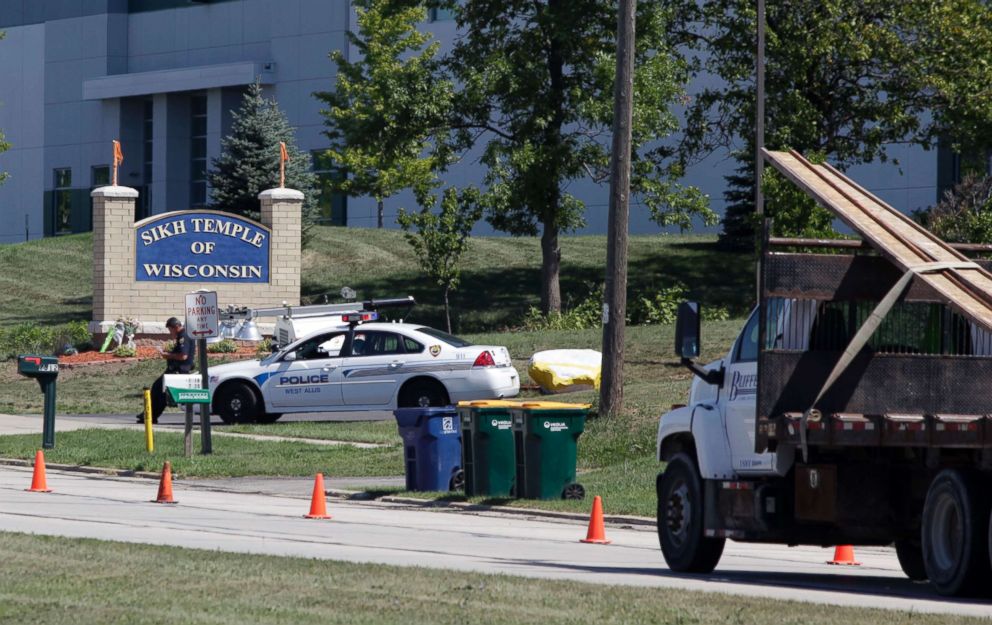
The shooting left six victims dead and four others injured before the shooter turned the gun on himself.
The gunman, Wade Michael Page, was a 40 year old Army veteran associated with a white-supremacist group, described by a watchdog group as "virulently racist," law enforcement officials told ABC News.
